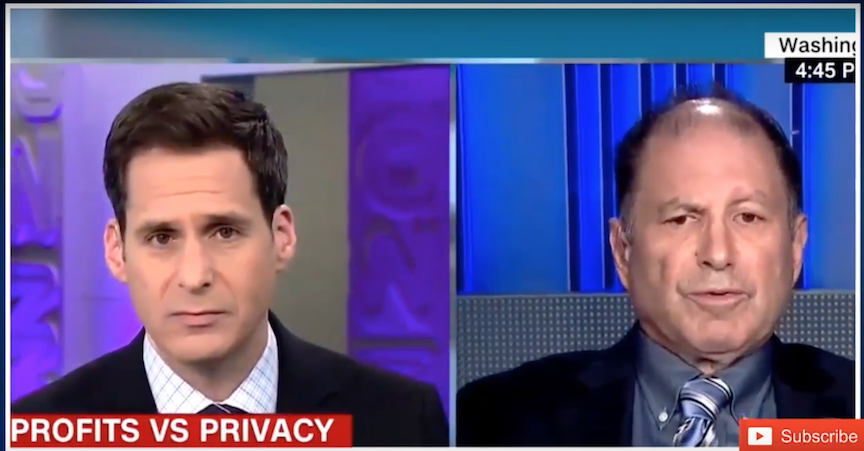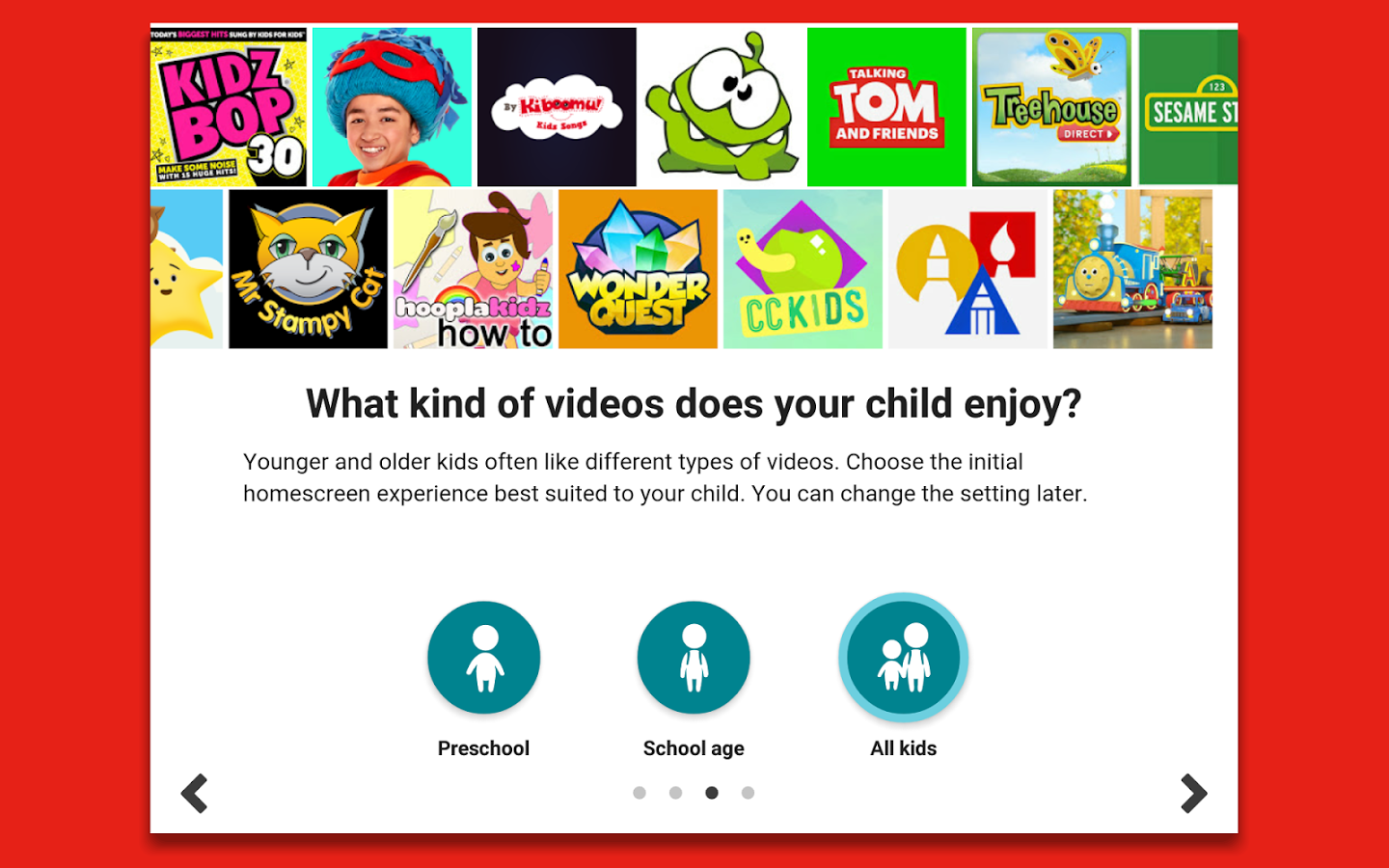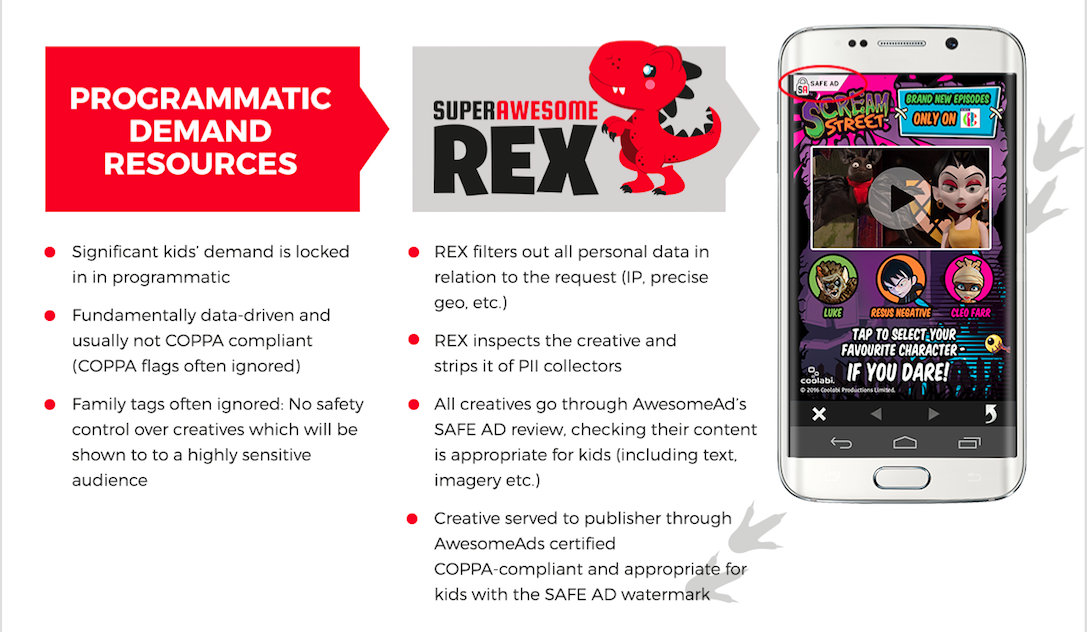
Publishings Digital Youth
Program Areas
-
The Center for Digital Democracy (CDD) and Campaign for a Commercial-Free Childhood (CCFC), by their attorneys, the Institute for Public Representation, respond to the Federal Trade Commission’s (FTC or the Commission) request for comment on proposed changes to TRUSTe’s COPPA Safe Harbor program. TRUSTe has sought approval of changes to its COPPA Safe Harbor program that it states are necessary to comply with an Assurance of Discontinuance it recently entered into with the New York Attorney General’s Office (NYAG). While the proposed changes themselves do not appear objectionable, the facts leading up to this proposal strongly suggest that TRUSTe has violated its 2015 Consent Decree with the FTC by misrepresenting its practices for assessing operators of child-directed online services (Operators). CDD and CCFC ask the FTC to conduct an investigation of TRUSTe to determine if it has in fact violated the Consent Decree, and if so, to take all available enforcement action against TRUSTe. Further, to protect the privacy of children pending the outcome of the investigation, they ask the FTC to suspend TRUSTe’s COPPA Safe Harbor program. (Link to the full report attached below.)
-
News
Groups Call on Facebook to Disclose and Explain Its Collection of Psychological Insights About Its Youngest Users
Facebook Told Marketers It Can Detect Teens Feeling 'Insecure' and 'Worthless'; Data Could Be Used to Drive Products Based on Mood and Using Manipulation
Facebook should immediately release all documents describing how it collected and analyzed psychological information it recently (link is external) collected about its youngest users, some as young as 14, and college students, Public Citizen and a coalition of 25 groups said in a letter (link is external) to the corporation today. The groups are concerned about how this information might have been used or may be used in the future by marketers and others to take advantage of young people’s emotions, all without users’ knowledge. Marketing companies and Facebook have secretly moved to tap into teens’ emotions and developmental vulnerabilities strictly for profit, the letter says. The groups want to know how the data was used, when it was used, how many users were impacted and the names of the companies that received the data. “What began as a way for college students to keep in touch has morphed into a platform for brand-saturated marketing and psychological manipulation,” said Kristen Strader, campaign coordinator for Public Citizen’s Commercial Alert campaign. “It is incumbent upon Facebook as a cultural leader to protect, not exploit, the privacy of young people, especially when their vulnerable emotions are involved.” According to The Australian (link is external) newspaper, Facebook presented research to one of its advertisers that shows it collects sensitive data regarding young users’ emotions and “mood shifts.” The research detailed how Facebook can analyze sensitive user data in real time to determine how young users are communicating emotion, and at which points during the week they are doing so, the letter continued. Facebook’s research was conducted without users’ knowledge, which raises ethical concerns. “Because Facebook plays such a powerful role in the lives of teens, it must adopt a policy that respects and protects them,” said Dr. Kathryn Montgomery, professor of communication at American University and a consultant to the Center for Digital Democracy. “This should include not only strong safeguards for its advertising and data practices, but also clear limits on the kinds of research it conducts for marketing purposes. Under no circumstances should marketers be using emotional states, stress levels, biometric information or other highly sensitive data to target users. And this should apply to both young people and adults.” “Facebook needs to come clean and publicly release the full internal document, reported in The Australian, describing how Facebook collected and analyzed psychological information on high school students, college students and young users, said Finn Lützow-Holm Myrstad, European Union co-chair of the Transatlantic Consumer Dialogue. “The burden of proof is on Facebook to document publicly that they don’t collect and use such information. We are concerned that companies don’t overreach and abuse their users’ fundamental right to privacy and data protection.” The public, its users and elected officials have a right to know how pervasive this research was, who was affected and how the company will ensure it does not occur again, the groups said. The only way to fully address those concerns is to publicly release the internal document and related materials, accompanied by a more detailed explanation from Facebook of what was intended, what happened and the company’s actual practices, the letter says. —30— --- See full PDF of letter to Facebook below. -
Reports
The New Age of Food Marketing
How companies are targeting and luring our kids — and what advocates can do about it
This report provides a snapshot of five categories of marketing tactics used by fast food, snack food, and soft drink companies to target children and adolescents. These categories include: 1) creating immersive environments; 2) infiltrating social networks; 3) location-based and mobile marketing; 4) collecting personal data; and 5) studying and triggering the subconscious. Descriptions of these categories along with examples from the food and beverage industry are provided. The report concludes with a discussion of what advocates can do to protect children and adolescents from these harmful marketing tactics. -
News
Federal Trade Commission Must Stop “Influencer” Marketing Targeting Kids on YouTube and Other Digital Sites
Complaint Filed Against Unfair and Deceptive Practices Used by Google, Disney’s Maker Studios, DreamWorks-Owned AwesomenessTV, and Other Companies, by Leading Advocacy Groups
The Center for Digital Democracy (CDD), Campaign for a Commercial-Free Childhood (CCFC) and Public Citizen filed a complaint at the Federal Trade Commission (FTC) today asking for an investigation and enforcement action against Google (a subsidiary of Alphabet, Inc.), Disney’s Maker Studios, DreamWorks-owned AwesomenessTV, and two other companies for the unfair and deceptive practice of targeting “influencer” marketing toward children. The complaint documents how several marketing companies—Collab Creators, Wild Brain, Maker Studios, and AwesomenessTV—produce and distribute ads and other commercial material targeting children that masquerade as content. It also details how Google encourages and benefits from the production of child-directed influencer videos and distributes these ads to children on its YouTube and YouTube Kids platforms. These “influencer” ads take unfair advantage of kids, who do not have the ability to recognize that companies use social media and YouTube celebrities to pitch toys, junk food, and other products. The groups also called on the FTC to release policy guidance that makes clear that using influencers to persuade children to buy a product or urge their parents to buy a product is unfair and deceptive. “Child-directed influencer marketing is misleading to children because their developing brains do not process or understand advertisements the way adults do—especially advertisements disguised as content,” said Laura Moy, Director at the Institute for Public Representation (IPR) at Georgetown University Law Center, which represents the groups. Existing FTC regulations require that advertisements be disclosed as such—which many influencer ads fail to do—but the complaint also makes clear that better disclosure alone is not a sufficient remedy because it “would not negate the inherent deceptiveness of child-directed influencer marketing.” As a result of the FTC’s inaction, marketing companies—backed by Google and others—are increasing investments in their influencer marketing practices with harmful results. “In many cases these advertisements cause children to want unhealthy and costly products,” Moy pointed out. “As this marketing practice expands even while evidence mounts that it is harmful to children, it becomes increasingly urgent for the FTC to make clear that the practice is unfair and deceptive under the law.” According to the complaint, the FTC can reverse the trend of harmful influencer marketing directed toward children by issuing policy guidance that makes clear that existing laws serve as a safeguard to protect children from these advertisements. The complaint analyzes the influencer marketing apparatus, and the role that Google and so-called Multi-Channel Networks (MCNs) such as Disney’s Maker Studios play in orchestrating the growing use of this tactic. It highlights how these companies use “influencers” who are young or popular with kids to sell junk food, toys, and more. The complaint identifies highly-popular YouTube channels like EvanTubeHD, Baby Ariel, Meghan McCarthy, the Eh Bee Family, and Bratayley, each with millions of subscribers, and how they present videos of child stars unboxing toys, playing games, and enthusiastically sampling junk food. The complaint provides several examples of such videos, including one where Baby Ariel and her family sample Jelly Belly brand jelly beans as part of a game called “BeanBoozled.” In another video, on EvanTubeHD, the child influencer is seen unboxing a Lego Police Patrol Boat. Neither video indicates that it is an advertisement, and both videos can be found intermingled with non-sponsored content on YouTube Kids. Google facilitates, promotes, and solicits these videos because they are popular with children, which increases the company’s ad revenues. “It’s time for the FTC put a stop to child-directed influencer marketing,” explained CDD’s Executive Director Jeff Chester. “Companies like Google are knowingly taking advantage of children and their parents by unleashing a torrent of stealth digital ads disguised as programming supposedly suitable for kids. As the country’s leading consumer protection agency, the FTC has a mandate to protect the public—including our children—from practices we know are both unfair and deceptive.” “Parents have no idea that the adorable ‘friends’ their children like to watch unbox toys are really stealth marketers,” said CCFC’s Executive Director Josh Golin. “It’s time for the FTC to take swift and decisive action and protect children from a practice that has long been prohibited on children’s television.” “Corporate predators are using young Internet influencers, admired by kids, to hawk their wares to children, even to young children,” explained President of Public Citizen, Rob Weissman. “The marketers and the advertising platforms enabling and promoting this activity should be ashamed. But since they’re not, we need the FTC to act to end their outrageous practice.” CCFC and CDD have also previously filed complaints with the FTC concerning child-directed marketing practices on YouTube Kids and YouTube. Todays’ complaint can be found at: http://www.commercialfreechildhood.org/sites/default/files/FTCInfluencerComplaint.pdf (link is external) -
Announcing REX: the world’s first kid-safe programmatic exchange Today (link is external)marks a major milestone in the kids digital media industry. We’re extremely pleased to announce the launch of REX, the world’s first kid-safe, COPPA-compliant programmatic exchange. COPPA and GDPR forbid profile or cookie-based targeting which has, until now, removed all programmatic options (and hence automation) from the kids industry. Part of AwesomeAds (our kid-safe ad server) REX guarantees that all automated ad requests are 100% kid-safe and COPPA/GDPR compliant. For the first time ever, REX makes it possible for advertisers across the world to programmatically reach the kids audience in a fully compliant, 100% kid-safe way. The kids space hasn’t had this capability (in any compliant sense) until now. REX genuinely shifts the entire industry forward. How does it work? At this point, our engineering team (about a third of the company) is probably the most experienced technical team in the global digital kids’ sector. This was a pretty helpful starting point. REX acts as a comprehensive kid-safety filter; it removes all non-compliant elements from each ad tag to ensure nothing can track users, before placing every creative through our ad content review process. Only then is it served through our COPPA-certified AwesomeAds platform, earning our SAFE AD watermark. Explained by our Chief Product Officer, Joshua Wohle: “REX inserts itself between the publisher and the exchange, taking the role of a firewall. It inspects the requests going out, stripping it from any PII before sending it through to the exchange. The exchange then considers the request and buyers can start bidding on the inventory. Once the winning bid is returned to the publisher, REX again intercepts it and removes any trackers that could be collecting PII before sending it on to the publisher. All of this happens in real-time, allowing for a full programmatic flow whilst ensuring compliance to all parties involved.” In order to bring this unique offering to the kids industry, we’re working alongside Rubicon, one of the biggest programmatic exchanges in the world. They provide real-time bidding and integration with all buyer systems across the globe. Combining our infrastructure in kid-safe technology and our exclusive kids inventory with their real-time bidding architecture, we are able to open up programmatic to the world’s biggest trading desks and DSPs across the kids market.
-
News
Activating Consumers on the Path‐to‐Purchase: Decoding the Role of Big Data & Digital Marketing
Here you will find the CDD Presentation to Institute of Medicine of September 2015. -
The Center for Digital Democracy (CDD), through its counsel, requests the following documents under the Freedom of Information Act (FOIA), 5 U.S.C. § 552, related to enforcement of the Children’s Online Privacy Protection Act (COPPA), 15 U.S.C. § 6501 et seq.: All annual reports submitted to the Federal Trade Commission (FTC) by COPPA safe harbor programs for the reporting period of July 1, 2014 through June 30, 2015 as required by the COPPA Rule, 16 C.F.R. § 312.11(d)(1), including, for illustrative purposes, reports from the following safe harbor programs: Aristotle International Inc. Children’s Advertising Review Unit (CARU) Entertainment Software Rating Board (ESRB) iKeepSafe kidSafe Seal Program (kidSAFE) Privacy Vaults Online (PRIVO) True Ultimate Standards Everywhere (TRUSTe) CDD asks that if any of the requested records are stored electronically that the FTC provide the requested records to CDD in their native electronic format as required under FOIA. 5 U.S.C. § 552(f)(2). Request for Fee Waiver or News Media Fee Benefit CDD asks the FTC to waive all fees associated with this request because disclosure of the records is in the public interest or, alternatively, to limit any fees charged to CDD to reasonable duplication fees because it is a noncommercial request by a member of the news media. 5 U.S.C. §§ 552(a)(4)(A)(ii)(II), 552(a)(4)(A)(iii). CDD is entitled to a waiver of all fees associated with this request under FOIA’s public interest standard and relevant FTC regulations. 16 C.F.R. § 4.8(e). The regulations permit the FTC to waive all fees associated with a particular request when a requester demonstrates that (1) “disclosure will likely contribute significantly to public understanding of the operations or activities of the government” and (2) “that the request not be primarily in the commercial interest of the requester.” 16 C.F.R. §§ 4.8(e)(2)(i)-(ii). CDD’s request qualifies under both prongs of the FTC’s public interest fee waiver standard. First, disclosure of the annual reports provided to the FTC by COPPA safe harbor providers and any related correspondence will contribute significantly to the public’s understanding of the FTC’s oversight of private entities tasked with enforcing federal law. COPPA was designed to protect children’s privacy online, an issue of significant public importance that concerns parents, consumers, lawmakers, and the general public. The instant request concerns data on how actively private safe harbor providers are policing COPPA compliance by their members. Relatedly, the records will also disclose whether and how the FTC performs its oversight role with respect to the safe harbor programs.1 From the reports, the public can scrutinize both the safe harbors’ performance and the FTC’s actions in administering the safe harbor program under COPPA. Because CDD intends to publish the requested documents, the public at large will benefit from better understanding whether and how the FTC is protecting children’s privacy online. Full complaint attached.
-
Blog
Facebook has been looking at an alternative to the 'Like' button
Reading your facial expressions and sending your friends an appropriate cartoon face.
Facebook has given us a bit more of an insight into some of the more experimental new products and apps its product team has been working on. Speaking at the Cannes Lions International Festival of Creativity, Facebook's chief product officer Chris Cox, showed off what could one day work as a more expressive version of the Like button. Instead of simply pressing Like, Cox said users could use their smartphones to take a selfie. But rather than just send that, the function could read the user's Facebook expression and transform it into an appropriate smiley/sad/frowning/indifferent face. Cox made it clear: "This is not on our roadmap, we don't know how to build this. It actually seems really hard, but it's the kind of thing unlocked by the power of all the different sensors on the phone." Read more at http://read.bi/1Ni1xJ5 (link is external) -
Delving deeper into ecommerce, Twitter is testing some new ways to help users discover products within its network. First up are dedicated pages, which will feature images and videos about products, alongside information such as a description, price and an option to buy, book, or visit a brand’s Web site for more information. Within users’ timelines, they can now expect to see pages and collections of pages that are shared by influencers and brands. In addition, Twitter is also beginning to test new ways for people and brands to create and share Twitter collections of products and places. Users can now browse collections from various influencers, and get more information about featured products and places. Already, there’s Nike’s LeBron Elite collection; Reese Witherspoon’s Draper James Summer Picks; The Ellen Show’s Best of The Ellen Shop and HBO's #GoT Fan Favorites. “This is just the beginning,” Amaryllis Fox, a product manager at Twitter, promises on a new blog post. “In the coming months we’ll be testing more new experiences we hope give you the most personalized and relevant information about the places and things you want to explore.” While Twitter struggles (link is external) with its direction, ecommerce appears to part of its broader ambitions. Among other efforts, the company has been inviting advertisers to create credit-card-connected promotions, and share them with users directly in their timelines. With their credit cards, users can redeem the new “Twitter Offers” in stores without the need for a coupon or numerical code. Full article available at http://bit.ly/1GuVHOT (link is external)






